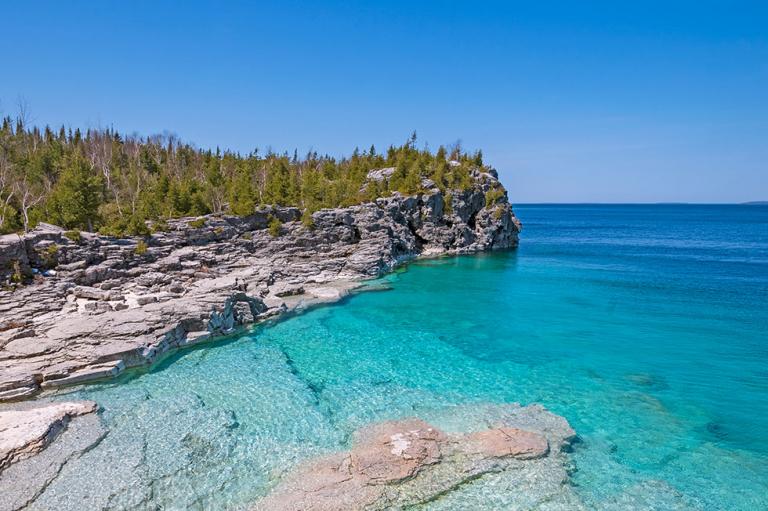Bruce Peninsula Biosphere Association
Grantee
Grow Grant

Award amount
$241,500
Award timeline
2016-2019 (33 months)
Age group
All age groups
Catchment
Grey, Bruce, Huron, Perth
Community size
Rural
Population served
General population
Opportunity
Soil erosion on agricultural land in the Northern Bruce Peninsula was creating poor water quality for the whole aquatic habitat, affecting fish spawning and rearing, and promoting algae growth in Lake Huron and Georgian Bay. Despite its rich ecosystem, the area has no Conservation Authority to protect and restore the environment.
Approach
Selected Grant Result: Conservation and restoration efforts be better planned and more sustainable.
The Bruce Peninsula Biosphere Association wanted to learn more about the size and nature of the soil erosion problem, in order to identify the most suitable and sustainable management practices to reduce erosion and improve water quality in the long-term.
Community impact
- Increased awareness of the importance of stewardship among members of the community
- Greater normalization of best management practices in local farming practices, fostering long term sustainability in the limited area of agricultural lands
- 115 volunteers contributed 1050 volunteer hours
Ultimately, the project helped to protect this ecological treasure chest and the tourism economy it supports.
Despite having one of the highest concentrations of rare species in Canada, the Northern Bruce Peninsula has no Conservation Authority to protect and restore the environment.
Enter the Bruce Peninsula Biosphere Association (BPBA), a non-profit, community-based charity based in Tobermory, Ontario. Its aim is to build community commitment and capacity in conservation and sustainable development, while achieving concrete environmental goals.
One of the biggest challenges facing the BPBA is how to reduce soil erosion on agricultural land. Fertilizer containing phosphorus and nitrates used by farmers to help crops grow can be washed into streams, for example during a rainfall. This creates poor water quality for the whole aquatic habitat, affecting fish spawning and rearing, and promoting algae growth in Lake Huron and Georgian Bay.
With the help of a $241,500 Grow grant from OTF, the BPBA set out to learn more about the size and nature of the problem. This enabled them to identify the most suitable and sustainable management practices to reduce erosion and improve water quality in the long-term.
The BPBA worked closely with farmers and academics in the community on the project. They collected local data on agricultural fields and streams, demonstrated best practices to address soil erosion, and increased the awareness of the importance of stewardship among members of the community.
Ultimately, the project helped to protect this ecological treasure chest and the tourism economy it supports, while also helping farmers use best management practices to keep soil and nutrients on the fields for healthier crops.

